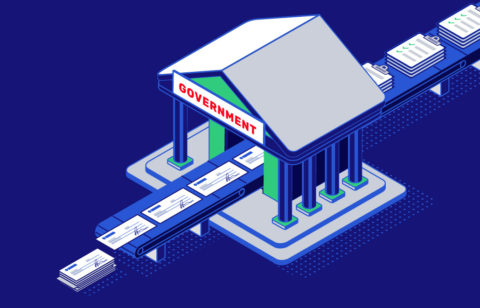The coronavirus pandemic has had a devastating effect on the United States economy and the workers who drive it. Over 26 million Americans have now lost their jobs due to coronavirus, and the unemployment rate is estimated at beyond 15%. If you’re one of the millions of people suddenly and unexpectedly out of work, trying to figure out what to do can be daunting. Don’t panic; instead, take control of your situation to minimize some of the worst effects of being unemployed. You can even prepare to take advantage of future opportunities to land your next job. Here are 10 great steps to take if you’ve lost your job due to the ongoing pandemic.
1. Assess Your Situation
The first thing you should do if you’ve lost your job is to take stock of your finances. Make a list of all your monthly expenses and other bills that will come due later in the year, such as property tax payments. You should also determine the amount of savings you have on hand, as well as the balances on your retirement accounts. Once you have a full picture of your finances, you’ll be able to make better decisions about how to make ends meet while you’re unemployed.
2. Make a Plan
Once you’ve assessed your financial situation, begin to revise your old household budget or make a new one. Determine your net cash outflows for the next six to eight months assuming you won’t be working for a period, and then determine how you’ll meet obligations. Be prepared to take a hard look at non-essential budget items, such as streaming services or subscriptions, and vow to make some sharp cuts. You’ll likely find that you don’t have enough funds to meet all your requirements, so identify exactly how much cash you expect to be short each month.
3. Apply for Unemployment
As soon as it’s feasible, apply for unemployment. States all have different criteria and requirements for unemployment payments and provide widely varying unemployment aid for different amounts of time, so find out what your state requires to collect unemployment and get your application in as soon as you can. If you’ve lost your job due to coronavirus, you may be eligible for additional federal unemployment aid as well. If you do qualify for unemployment and begin receiving aid, ensure that you adjust your household budget accordingly.
4. Contact Your Creditors
If you have credit cards, a car loan, or a mortgage, contact your lenders as soon as you can, especially if you expect to have trouble making your monthly payments. If you’ve lost your job, some lenders may be willing to adjust your repayment terms. The recently passed CARES Act also allows some borrowers with federally backed mortgages to request a 12-month reprieve on mortgage payments. Many entities are offering similar repayment options, so you should determine whether your debt is eligible for some sort of relief due to the coronavirus pandemic.
5. Start Your Job Hunt
Despite the hit the economy has taken, some companies are still hiring. However, the job market is highly competitive with so many people out of work, so you’ll need to stand out to be hired. Dust off your old resume and revise it. You should also consider making a compelling LinkedIn profile. LinkedIn is a great place to start looking for jobs, as are other sites such as Monster.com, so make profiles on those and start searching. Make sure you have a nice suit or other business clothes on hand and brush up on your interview skills so you’re ready to land a good job if you get the opportunity.
6. Find a Side Hustle
It can take time to land a new, full-time job. In the meantime, you should search for a part-time job or side hustle. A side hustle can help you close your budget gap if you’ve lost your job; it may even leave you a little extra cash on hand at the end of each week. If you’re living under coronavirus lockdown right now, be aware that many side hustles can be done from home. For example, if you can write, do graphic design, or do coding, you may be able to find remote work as a freelancer on sites such as Upwork. If you’re receiving unemployment benefits, make sure you check in with your unemployment office to verify that you can still receive benefits while working part-time.
7. Determine Aid Eligibility
While unemployment aid is the most commonly thought of benefit for people who are out of work, federal and state governments, as well as the private sector, have numerous benefit programs available for workers affected by coronavirus. If you’ve lost your job, look into your eligibility for aid through every avenue possible. For example, if you’re a contractor who receives a 1099 tax form from a company or government agency that you provide services for, you may be eligible to apply for aid under the recently enacted Paycheck Protection Plan, or PPP. Additionally, some companies are providing grants and other relief to workers affected by coronavirus in their industries. Samuel Adams, for instance, is currently offering $1,000 grants to unemployed bar and restaurant employees. So, take the time to search online while you’re stuck at home to see if any additional financial resources are available to you.
8. Leverage Resources in Your Community
Millions of people have been affected by the economic fallout of COVID-19, and many communities are responding to help people who are suddenly finding themselves in difficult situations. If you’ve lost your job, look for organizations in your community that can help. For example, many towns and cities have food banks that distribute food and other supplies to people who are out of work. You may be able to register online to get access to donated food items, or otherwise be notified when they have food on hand for you to pick up.
9. Seek Self-improvement
If you’ve lost your job, you likely have more time on your hands than you’re accustomed to. You should use that free time to seek additional education and training. Many colleges and universities are offering free online classes during the coronavirus pandemic, so you may be able to earn credits toward a degree while you’re out of work. You may also be able to obtain important professional certifications free while you’re under lockdown. Classes, certifications, and training may be just what you need to strengthen your resume and bolster your chances of landing a new job.
10. Stay Positive
Losing your job can be stressful during normal times. However, under the threat of coronavirus and living under lockdown, it’s no surprise that so many Americans are feeling elevated levels of anxiety and depression. Do everything you can to stay positive during this challenging time in your life. Try to keep a productive routine as best you can; wake up at a set time, keep your home tidy, and make sure you eat and sleep enough. You should make sure you get dressed every day, and exercise as much as you can. Keeping depression at bay will help you get everything you need done and put you in a good position to weather this crisis.
Hang in There!
If you’ve lost your job during the coronavirus pandemic, you’re no doubt in a challenging situation. Consider the helpful steps discussed here to address the challenges head-on, so you can weather the storm and find new work and a brighter financial future as soon as possible.





